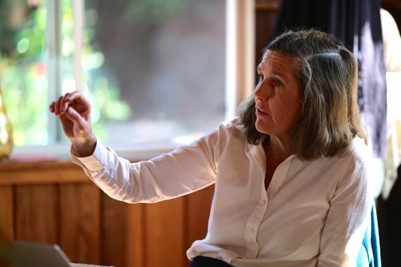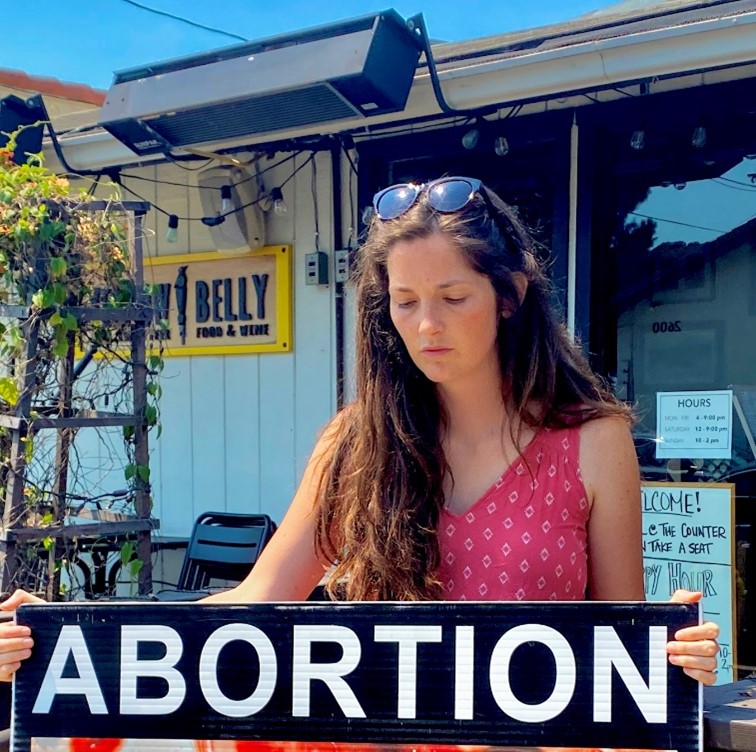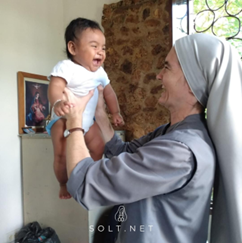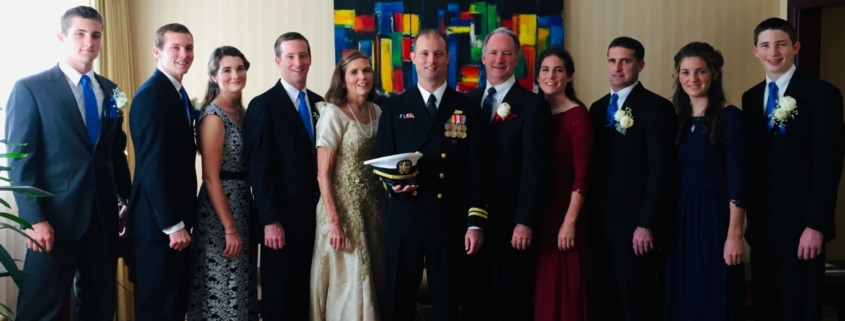Family of Pro-Life Leaders Formed at Newman Guide College
How can we build a pro-life culture in America? The faithful Catholic schools and colleges recommended in The Newman Guide are critical to the success of pro-life efforts.
Through Newman Guide education, students are taught about the value of all human life, from conception to natural death. They learn that faith informs science and medicine, and science and medicine must be in service of human dignity. They learn critical thinking and seek understanding.
It’s no surprise that pro-life leaders are being formed through Newman Guide education. One example is the Short family: Bill and Katie Short met at Thomas Aquinas College in Santa Paula, Calif., graduated in 1980, got married, and welcomed nine children. Today, Katie is Vice President Legal Affairs at Life Legal Defense Foundation, and her three daughters—Catherine (Thomas Aquinas Class of 2019), Sr. Gianna Marie (Thomas Aquinas Class of 2015), and Mary Rose (Thomas Aquinas Class of 2011)—are also leaders in the pro-life movement:
- Catherine volunteers with California Right to Life, which educates Californians about abortion and the value of all human life, while also running her own bakery.
- Sr. Gianna is currently serving at the SOLT mission in Benque Viejo, Belize, where she is the director of the Seed of Life Center, a pro-life pregnancy center.
- Mary Rose is Director of Outreach for California Right to Life.
We spoke to each of them:
CNS: How did your education and formation prepare you for your work at Life Legal Defense Foundation?

Katie Short is Vice President Legal Affairs at Life Legal Defense Foundation.
Katie Short: It’s a no-brainer to say that four years of arguing with one’s fellow students in the seminar-style classes at TAC [Thomas Aquinas College] is a great preparation for the legal profession. But practicing law in the pro-life field brings its own set of challenges. In most jurisdictions, one has to be prepared to lose not just the losing cases, or the iffy cases, but cases where the court has to contort well-established law to rule against the pro-life side. As for getting fair rulings on evidence, the backdrop of every pro-life free speech case is that “everybody knows” that anti-abortion advocates are dangerous zealots out to terrorize abortion providers and their patients. Needless to say, this sharply tilted playing field can lead to discouragement, for which the surest remedy is the reflection that the justice of this world is not the final word.
CNS: What should Catholic schools and colleges do to help advance the pro-life cause?

Catherine Short is actively involved in volunteer efforts for the pro-life cause.
Catherine Short: No matter how faithfully Catholic a school tries to form young people, without an education directed toward clear-thinking in pursuit of truth, its students will likely fall away from their Faith when confronted with the lies and emotional confusion of the present day. Truly Catholic education teaches one to see beyond feelings and accidents, beyond decaying societal norms, and into the very essence of things… We can build a culture of life that views new life as a good despite hardships, only on a foundation of reason as well as Faith.
…I’ve been fighting abortion through education since I was 14. I’ve worked on three election campaigns, sidewalk counseled for hundreds of hours (the first baby saved when I was 15!), led dozens of classroom presentations on abortion and chastity, protested and shut down Planned Parenthood fundraisers, participated in hundreds of college educational outreaches, etc.
Actively fighting great injustice is, I believe, necessary for a life well-lived. I’m grateful for TAC’s strong emphasis on reason, which has helped me become a more clear-thinking and effective member of the Church.
CNS: Why is faithful Catholic education important to building a pro-life culture?

Sr. Gianna is currently serving at the SOLT mission in Benque Viejo, Belize, where she is the director of the Seed of Life Center, a pro-life pregnancy center.
Sr. Gianna Marie of the Society of Our Lady of the Most Holy Trinity: One reason Puritans left England was so they wouldn’t be around those awful worldly people who celebrate Christmas. They rejected celebrations of life and joy to focus on the hard, cold world of fallen human nature. A Catholic culture is a culture of celebration. Food is good! Family is good! Life is good! Yes, nations wage unjust wars, poverty grinds on in an ugly cycle, and the seeming escape of alcohol and drugs drags down to misery. How can we say life is good? Because that’s not all there is. Authentically Catholic schools exude joy, because they know the secret behind the evil that we see. We have a Savior! In a fully Catholic school, this truth is taught, defined, mulled over, experimented with, enjoyed, and ultimately lived. Before we can hope for a culture that protects life, we must have a culture that loves life. And to build a culture that loves life, we must first recognize that human life has been divinized by God becoming human.
CNS: How do we build a culture of life?

Mary Rose Short is the Director of Outreach for California Right to Life.
Mary Rose Short: Many people are pro-abortion simply because they have never questioned the mainstream pro-abortion narrative. If they honestly consider a few questions about their beliefs and why they hold them, they come to realize the truth. We have a duty to bear witness to the truth. Whether we reveal the brutal truth about abortion through conversations or images of its victims, we persuasively build on our shared principles about human dignity to lead people to a more genuine understanding of the value of all human beings. This is the heart of pro-life activism. This is how to build a culture of life.

